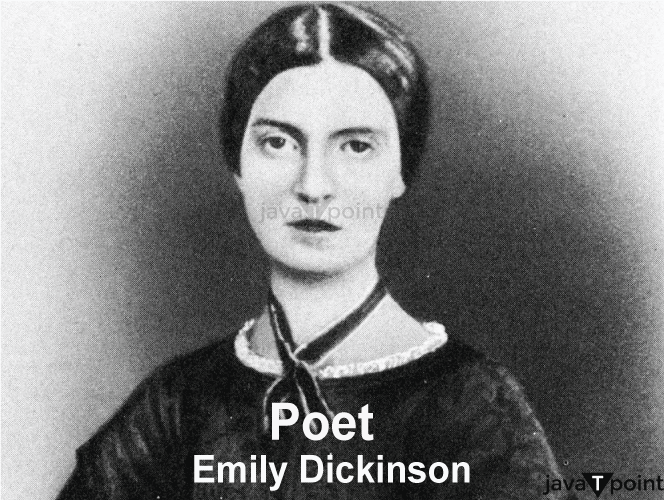Success is counted Sweetest AnalysisThe poem "Success is counted sweetest," which has three stanzas, discusses the relationship between "need" and "triumph." Fundamentally, one can only correctly appreciate the most extraordinary things in life by experiencing that "need." The contrast between the stanzas demonstrates both the gentleness of discovering virtue after a "need" and the hardness of leaving what you "need" for "victory." 
This dilemma shows several outcomes: a person may experience happiness due to the transformation, or they may experience "agony" because the good thing can only come about by pure sacrifice. Whatever the case, it is the contrast between "need" and "triumph" that gives the comparison its strength and helps people understand the actual meaning of "success" and "victory" in their minds. About Emily Dickinson
One of the most well-known American poets was born in Massachusetts and named Emily Dickinson. She went to Amherst Academy, and although she didn't have many of her works traditionally published during her lifetime, she did share her poetry with her loved ones. She even stitched them together in what may be considered handmade collections. Analysis of Success is counted sweetest.
Stanza 1Success is counted …… Requires sorest need This opening verse sets the stage for the central idea of "Success is counted sweetest," which is that you must essentially fail to possess something to appreciate its value entirely. Only someone who has "ne'er succeeds [ed]" will "count" "success" at the "sweetest" degree, according to this particular verse, and only through "need" can a person "comprehend a nectar." This idea might be justified in that people who have items they "need" without a doubt may frequently take such things for granted, which would suggest that they fail to understand those aspects on a deeper level. It makes sense if one thinks about something as essential as water. It may be available if all we have to do to acquire it is open a bottle or turn a faucet. However, if someone were lost in a desert, the value of that same water would increase, and it may even be at its "sweetest" value. Even though the repeated sound in "Success is counted sweetest" is a soft "s," the alliteration in the first two lines demonstrates the importance of the covered themes. As the "s" sound keeps repeating, this suggests an ongoing issue; nevertheless, it does not always mean that the person is being harsh. If it were, perhaps a more difficult sound would be heard repeatedly, such as a cutting "c" or a blunt "b." However, in this instance, the softer "s" makes the statement that it is inhuman to value anything until one is in "sorest need" sound more like a universal characteristic than a flaw. Instead, it's just a habit we haven't yet broken. The word "nectar" is used to describe the circumstance in the final two lines of this poem. Since "nectar" means "sweet," it relates to the first lines of the stanza. But it's equally crucial to remember that "nectar" was mythologically linked to Roman and Greek deities. Dickinson has introduced a meal associated with such a lofty conception of existence. Still, even though it is so far away, a person will only "comprehend" its magnificence if in "sorest need." It shows that regardless of how magnificent an element or thing is in nature, humans will only fully enjoy it if they truly "need" it. Additionally, the ABCB rhyme structure of "Success is counted sweetest" puts these thoughts in a regular rhythm that mirrors how commonplace Dickinson felt these notions of being. She believes that to enjoy something as significant as "nectar truly," one must "need" it. She knows about this idea with the same level of certainty as one can expect a B line to come after an A or C one. Stanza 2Not one of all the purple …… So clear of victory In this verse of "Success is counted sweetest," Dickinson refers to "the purple Host," bringing monarchy into the picture because traditionally, the term "purple" was associated with the wealthy and the regal. Since those in "purple" are the ones who "took the Flag today," it would seem reasonable to believe that they are members of royalty whose army has triumphed in a conflict. The only capitalized words in this stanza, "Host" and "Flag," refer to that monarchy and their nation. It shows that while the fighting soldiers are viewed as relatively less essential beings, they are the ones that control the situation. There is little question that this provides a degree of significance for height. Still, Dickinson claims that due to the "Host" elevation concerning the physical situation, "no one" of them "can tell the definition" "of victory." They are the ones who have staked a claim to "the Flag," but they are ignorant of the significance of the continuing conflict. Because of this, they cannot fully understand the "victory" or even "tell the definition" of it. As a result, they will never really understand the sense of accomplishment after the war is won. It's also important to note that the ABCB rhyme scheme is considerably decreased because "today" and "victory" only rhyme when you carefully speak one of them. This variant can imply that the "Host" understands "victory" in a relatable sense but that their understanding is still incomplete since they are so far removed from the destruction. The uneven rhymes of "today" and "victory," which are related but still not ideal in time with one another, represent this. Stanza 3As he defeated …… Burst agonized and clear! According to the third verse of "Success is counted sweetest," the warrior who lost his life for the idea is the one who comprehends the battle's "victory" in a "clear" way. Ironically, this "victory" is described as a "defeat" to the extent that hearing "distant strains of triumph" are described as "forbidden" and "agonized." This irony is engrained in the work since "the purple Host" appears to be upbeat and in a happy mood. At the same time, the person who struggled to achieve that triumph is ignored to the point that he is not only left out in the cold at the conclusion but is also not meant to learn of the "victory" he is "dying" for. In a way, it makes comprehending what "victory" means a bad thing. The sensation's full impact can only be felt once one suffers for it generally. In this, sacrifice and "victory" go hand in hand, so much so that it may be challenging to feel jealousy for the person who fully understands "victory," as it may not always seem to be worth the price. However, you'll see that the ABCB rhyming pattern is back in complete form, signifying the depth of this soldier's grasp of "victory." While physically "distant" from those who declare the "victory"-"the purple Host"-it is "clear" to this individual even though they are "victors." He can only comprehend what "victory" means in that depraved position, even if he is far from them and below them on the social ladder as his life ends. He does it because he understands that the incident will result in his death. He knows the price that "victory" demands: his survival. It is related to the idea that meeting someone's needs might help them comprehend things better, but in this case, the actual meanings of "success" and "victory" are revealed by meeting those needs. It is a worse situation because there isn't any joy in store for this individual, unlike someone hungry before discovering their "nectar." Death and cruelty are the only things in store for this individual. The quantity of terms in the lines that start with the letter "d"-words like "defeated," "dying," and "distant"-shows how severe they are. Each of these terms has a harsh meaning and begins with the same sharp "d" sound as the word "death" itself. Dickinson carefully chose the words to convey the destruction that awaits someone who makes the ultimate sacrifice for someone unable to thoroughly understand the "victory" that the soldier has achieved. The "clear" vision of "victory" that this individual has in this situation consists solely of sacrifice, as He is "agonized" and "defeated" while he lies, and the "sounds of triumph" are a "strain" for him. " Thus, "success" appears to be distinct from "victory" since it includes discovering value following a period of "need." In this situation, "victory" is defined as the loss of something that was "need[ed]" without even receiving praise or inclusion. Even if the excellent item was gained by a "Host" group of individuals rather than the one who sacrificed, the belief that only those in "need" can grasp the enormity of having something spectacular persists. Regardless of how it will affect the individual who is feeling the "need," it is only via that "need" that the true meaning of the word "triumph" can be understood.
Next TopicRuskin Bond Short stories summary
|
 For Videos Join Our Youtube Channel: Join Now
For Videos Join Our Youtube Channel: Join Now
Feedback
- Send your Feedback to [email protected]
Help Others, Please Share









